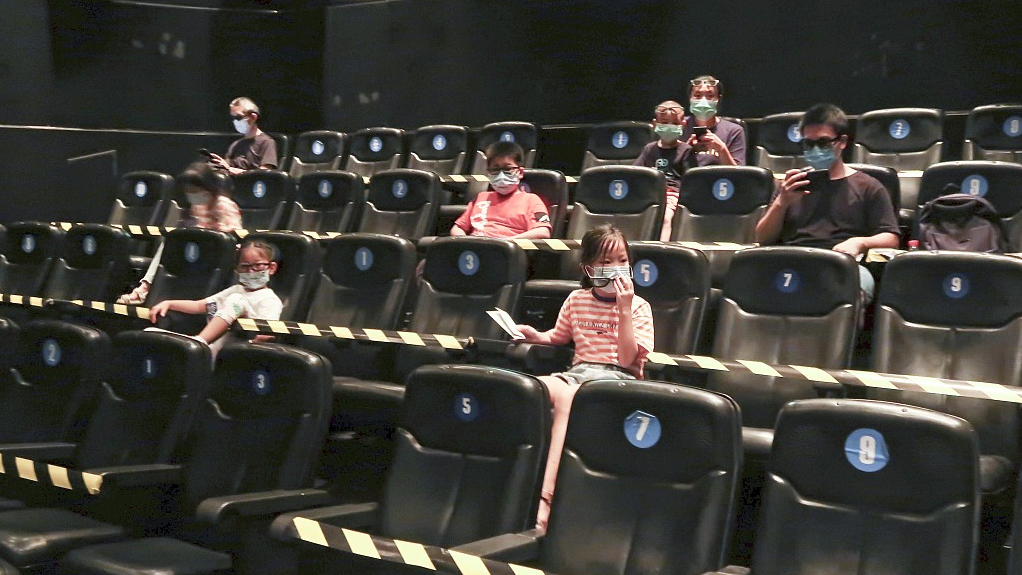
Editor's note: Haider Rifaat is a writer for South China Morning Post, Arabian Moda magazine, Good Times magazine and OK! Pakistan. The article reflects the author's opinions, and not necessarily the views of CGTN.
Amidst the harrowing COVID-19 and its overbearing influence on the global film industry, an occasion like the 10th Annual Beijing International Film Festival (BJIFF) comes as a blessing in disguise. Although the festival has witnessed its share of downfalls this year, especially relating to postponements, the BJIFF is finally opening its gates on August 22. The event will last for eight days straight until August 29.
In a time where the film industry has seen a visible decline in revenue, with cinemas shut worldwide, the Chinese entertainment industry is offering some entertainment value with partial reopening of cinemas. Even festivals, like BJIFF and the recently concluded Shanghai International Film Festival (SIFF), have offered us some respite from COVID-19.
The scheduled BJIFF will be accessible via four platforms; through digital streaming, television, and more than a dozen cinemas and outdoor screenings. Participants will get to watch 300 Chinese and foreign films during the eight-day run of the anticipated event. The BJIFF welcomes international film entries with open arms. Festivals like these place high value on entertaining mass crowds, and enable the global community to come together and tell culturally and socially sound stories.
In that vein, the Chinese government and organizers of the Beijing International Film Festival have managed to project their soft power to the world, which has helped them maintain their international presence. The festival will introduce a mix of modern and classic films that would allow the audience and participants to experience a range of emotions and film making techniques.
Given the current situation pertaining to coronavirus and its rise, the BJIFF organizers should take it upon themselves to ensure that safety guidelines are followed. The format of the festival is not confined to digital outlets but outdoor cinema screenings as well. Hence, moviegoers should adhere to strict precautionary measures to avoid the potential spread of the virus. It is wiser to opt for a complete digital experience and avoid physical interaction. Following standard operating procedures during the BJIFF would not only help curb the spread of the virus but make this event a success story.

Moviegoers sit away from one another at a cinema in Shanghai, July 21, 2020. /CFP
Moviegoers sit away from one another at a cinema in Shanghai, July 21, 2020. /CFP
We know how local cinemas in China have recently earned millions at the box office despite COVID-19. So far, the decision of partially reopening cinemas in Mainland China has proved successful. China is one of the only countries to have pulled off this daring move with precision.
Cinema houses across the world remain closed primarily in countries hit hard by COVID-19 including the United States, United Kingdom, Brazil and Russia. India will take two years – maybe longer to recover from the damage COVID-19 has caused Bollywood. According to Ampere Analysis, the film industry at large is estimated to lose 160 billion U.S. dollars in the next five years while Hollywood eyes the worst year for films and overall box office performance in more than two decades.
Despite everything, China has done the unthinkable, pulling in solid box office revenue that is helping their film market gradually recover. The United States in particular continues to witness a spike in COVID-19 cases. Thus, prioritizing cinemas to reopen is not the safest option. Many studios and production companies are eyeing the opportunity to release films straight to DVD. People are instead, largely depending on streaming platforms like NETFLIX for entertainment. The company registered 10 million subscribers in the past few months with three million of these users from the United States alone.
Film festivals from around the world have either decided to cancel, postpone or continue these gigs online. The Tribeca Film Festival scrapped off plans for 2020 following the pandemic and plans to make a comeback on its grand 20-year anniversary next year. The Cannes Film Festival met a similar fate, cancelling its prestigious event this year.
Perhaps Asia is one of the only regions standing strong in face of adversity. The SIFF and BJIFF prove otherwise. The later will kick start in two days and will offer what other countries can't during the most challenging year in modern history.
(If you want to contribute and have specific expertise, please contact us at opinions@cgtn.com.)